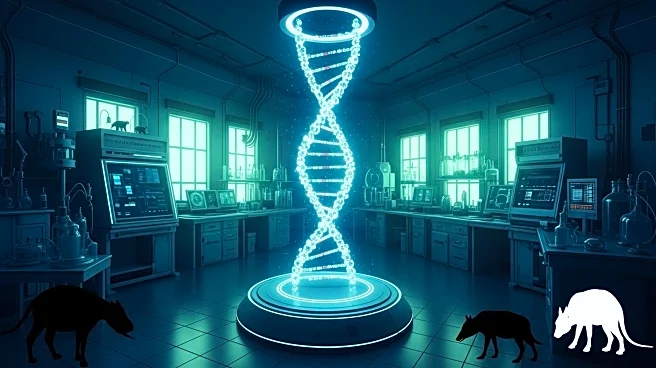What's Happening?
A Dallas-based biotech firm, Colossal, is at the forefront of efforts to bring back extinct species using advanced genetic engineering techniques. The company is working on reviving species such as the woolly mammoth and the dire wolf, with the goal of ecological restoration. Scientists involved in the project emphasize that their aim is not to 'play God' but to address the ecological imbalances caused by human activity, which has led to the extinction of nearly one million species. The project represents a significant advancement in biotechnology and raises questions about the ethical implications of de-extinction.
Why It's Important?
The work being done by Colossal has the potential to revolutionize conservation efforts and address the loss of biodiversity. By bringing back extinct species, scientists hope to restore ecosystems and improve environmental health. However, the project also raises ethical and ecological concerns, such as the potential impact on current ecosystems and the moral considerations of reviving species that have been extinct for thousands of years. The success of this initiative could pave the way for further advancements in genetic engineering and conservation, influencing policies and practices related to biodiversity and environmental protection.
Beyond the Headlines
The ethical implications of de-extinction are complex and multifaceted. While the potential benefits to ecosystems are significant, there are concerns about the unforeseen consequences of reintroducing extinct species. The project also prompts discussions about the role of humans in correcting past environmental damage and the responsibilities that come with such power. As the technology advances, it will be crucial to establish guidelines and regulations to ensure that de-extinction efforts are conducted responsibly and sustainably.











